New visiting legislation proposed for care homes
- Published
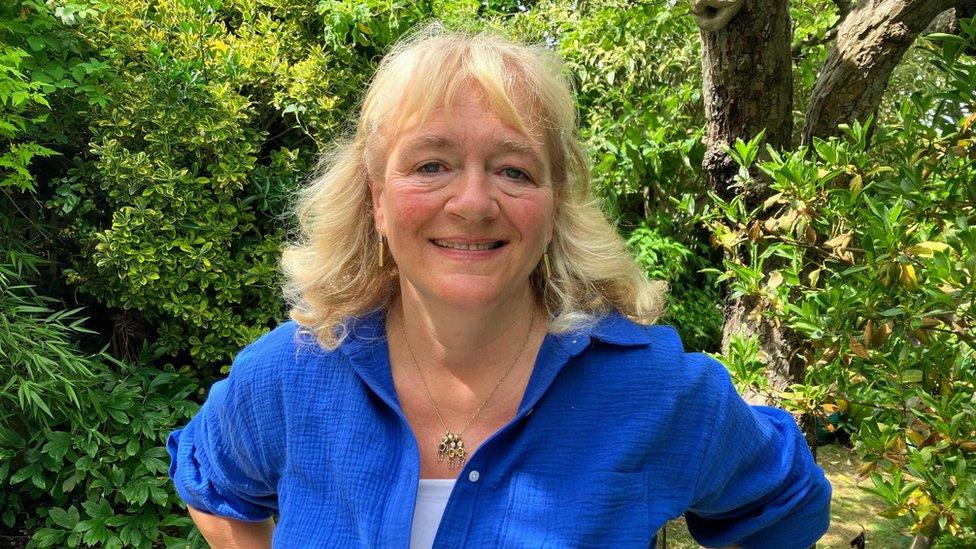
Hazel Leech welcomed the changes but said they did not go far enough
New legislation allowing people in care homes and hospitals to have visitors in all circumstances has been proposed.
If passed, the new regulation would make visiting a legal requirement for hospitals, care homes and other health and care settings in England.
The proposed law comes after a petition calling for essential support visitors.
Hazel Leech, who said her mother felt abandoned while living in a care home during Covid, welcomed the proposals but said they did not go far enough.
'Fade away'
Talking about her mother Barbara Skinner, who died aged 96 after falling in her care home before Christmas 2020, she said: "Her mental health plummeted. It was so very difficult.
"There was nothing I could do. I was totally powerless. We watched our loved ones fade away through windows."
Ms Leech, who is from Bath, said Gloria's Law - which she is petitioning for - is very different to the proposed changes.
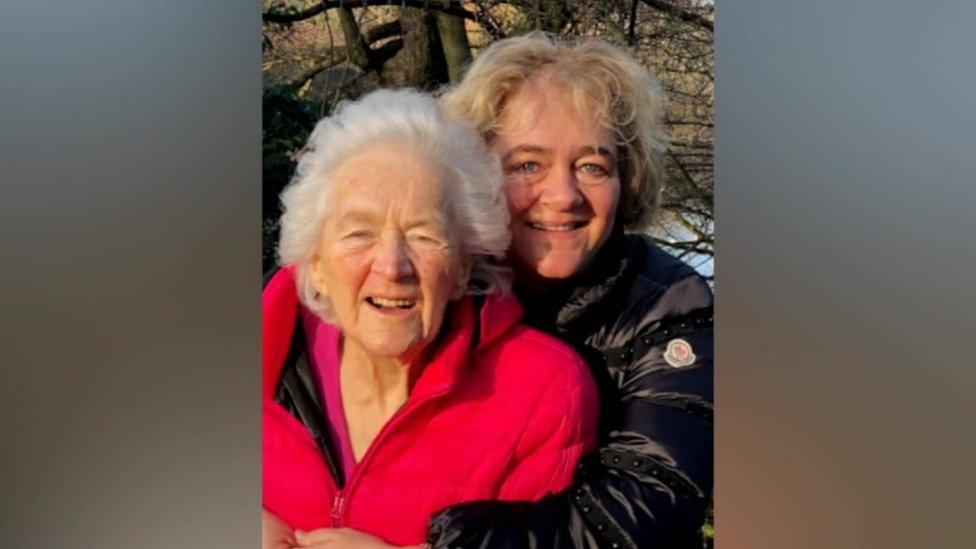
Ms Leech said: "We watched our loved ones fade away through windows"
Named after West End actress Ruthie Henshall's mother, who died aged 88 during the pandemic, Gloria's Law would guarantee unrestricted in-person care by appointing at least one essential care supporter, who could be a family member or friend, and would be assigned as a part of a legal requirement in all health and care settings.
"We see the difference from a granddaughter going to see her grandmother and a care supporter. A care supporter is there to help with medication, hearing aids, mental health support, like I wish I could have been there for my mum," Ms Leech said.
Ms Leech - whose mother was deaf but of sound mind - was eventually allowed in to see her two weeks before she died.
She added she did not believe the proposed changes, which would be regulated by the Care Quality Commission (CQC), could be easily complied.
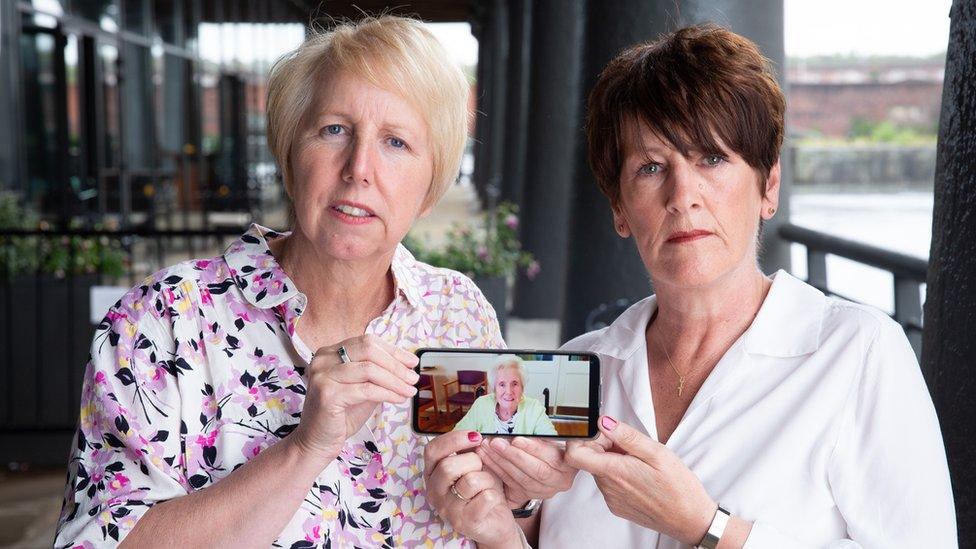
Di Mayhew and Jenny Morrison started the petition for Gloria's law
Di Mayhew and Jenny Morrison, a couple from Liverpool, set up Rights for Residents and started the petition for Gloria's Law after they were unable to see Ms Morrison's mother, who had advanced dementia and was living in a care home during the pandemic.
Ms Mayhew said while the changes were "a great step in the right direction", she was worried about breaches slipping through the net.
"It's really important to know this isn't just about old people - it's young people with learning disabilities, it's people in hospital," she said.
'Trauma'
"At the beginning we all kind of understood why everybody went into lockdown but in trying to protect them from Covid, all the other risks of harm were ignored," she added.
Ms Mayhew said her dad died of Covid in April 2020, with none of his family able to say goodbye.
"The trauma that must have caused him, that will never ever leave us.
"We know you can't just open the doors and let everyone in but when you're taking that vital support away, that's dangerous," she said.

Gez Ossai believes it would be "very difficult" to have the policy and maintain infection control in care homes
However, manager of Wentworth Court care home in Cheltenham Gez Ossai - who survived after being left in a coma when he contracted Covid-19 - believes it would be "very difficult" to have the policy and control virus transmission.
"My concern would be one of my residents ending up like I did.
"I'm relatively fit and healthy and I would worry that the residents here - some of which are 30, 40 years older than myself - would really struggle," he said.
The National Care Forum - which advises on policy - believes infection control can be managed alongside maintaining personal contact with loved ones.
The Minister for Care, Helen Whately said she was determined on changing the law on visiting after listening to campaigners.

Follow BBC West on Facebook, external, Twitter, external and Instagram, external. Send your story ideas to: bristol@bbc.co.uk , external
Related topics
- Published29 January 2023
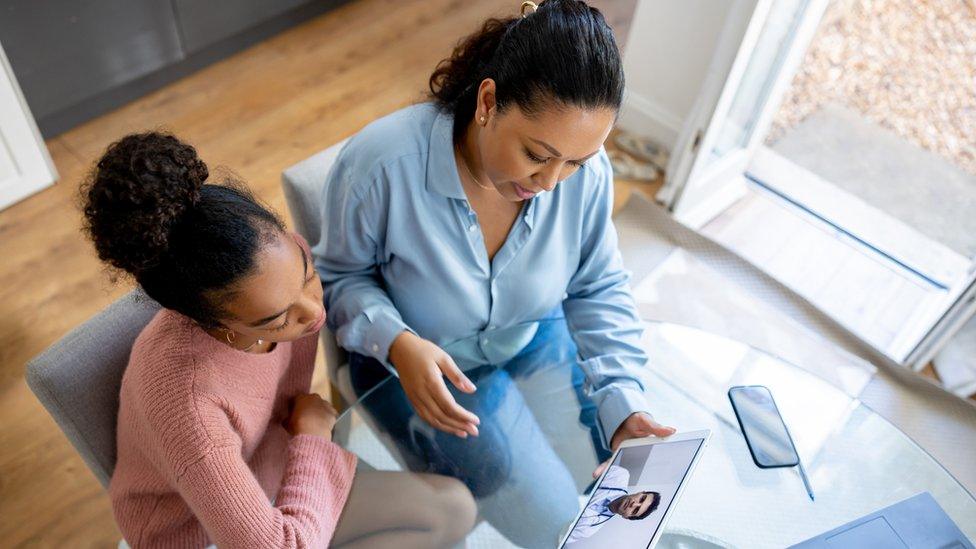
- Published26 January 2023
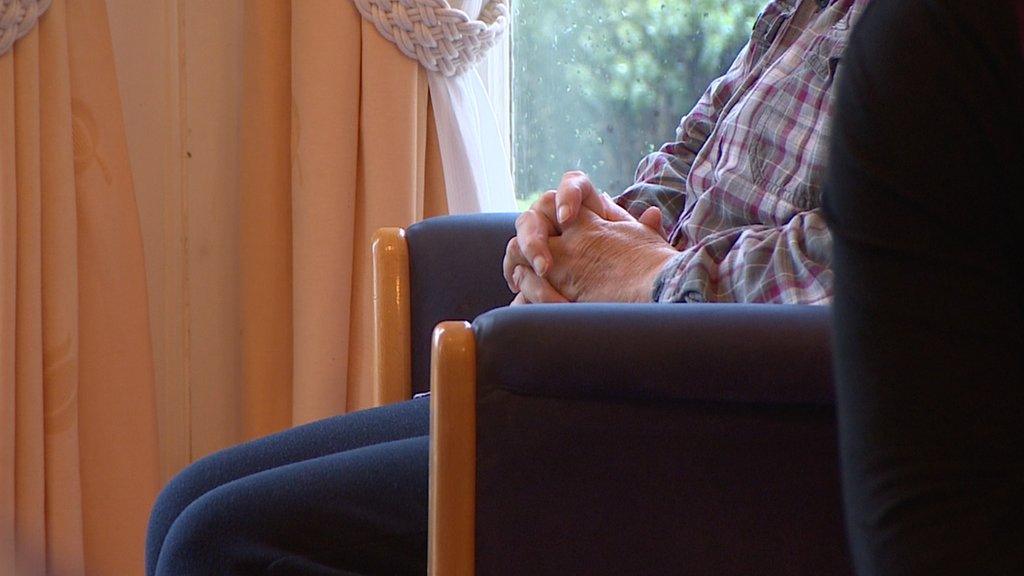
- Published17 September 2021
